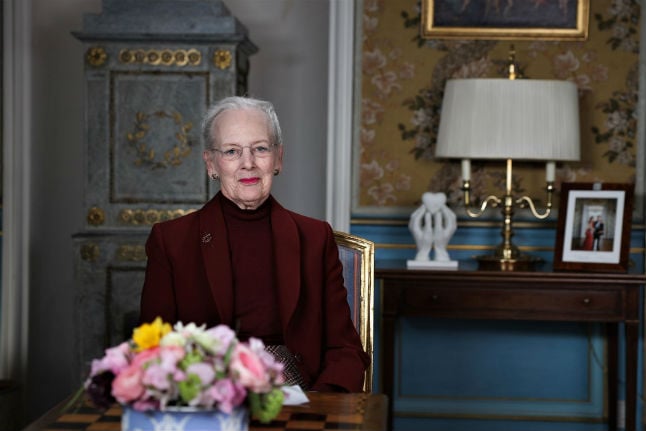- Denmark bans gatherings of more than ten to slow coronavirus
- Does Denmark need to force people to keep their distance?
- The answers to your questions about the coronavirus in Denmark.
QUEEN
Denmark’s Queen appeals to Danes to keep apart in coronavirus address
Denmark's Queen Margrethe II has told her subjects that attending any sort of gathering at this point would be both "inconsiderate" and "reckless" and could lead to the deaths of loved ones.
Published: 18 March 2020 09:26 CET

The queen made the speech from Fredensborg Castle. Photo: Dr/Scanpix.dk
Her televised speech from Fredensborg Palace, marks, Danish media reported, one of the first times the much-loved 79-year-old monarch has directly addressed the nation over a specific issue.
“What we do and how we act in the coming days could be decisive for how the situation develops over the coming weeks,” she said. “Right now we have to show our togetherness by keeping apart.”
Queen Margrethe warned that “sadly, not everyone is treating the situation with the gravity that it calls for”.
“One sees groups of all ages in close proximity. Some even continue to throw parties and celebrate birthdays. I find this indefensible, it is thoughtless, and more than that, it is reckless.”
The virus, she said, was “a dangerous guest”, which “spreads like ripples from a stone”.
One person can infect many others and in that chain, people will die. A child might lose their grandmother, a daughter her father,” she said. “Friends will suddenly no longer be there any more. This is the chain we must break.”
READ ALSO:
The speech came directly after Denmark's Prime Minister Mette Frederiksen announced the toughest measures yet to enforce social distancing, banning all gatherings of more than ten people, and ordering cafés, restaurants, and hairdressers to be closed.
“The advice fro, the authorities is actually quite simple,” she said. “Wash your hands. Keep your distance. Avoid physical contact. Stay at home.
“It is natural that we are worried, but together we can create new hope in a difficult time. My thoughts go to every one here in the country with the desire for hope and comfort and good courage.”
Url copied to clipboard!


 Please whitelist us to continue reading.
Please whitelist us to continue reading.
Member comments